From the Chicago Reader (May 13, 2005). — J.R.
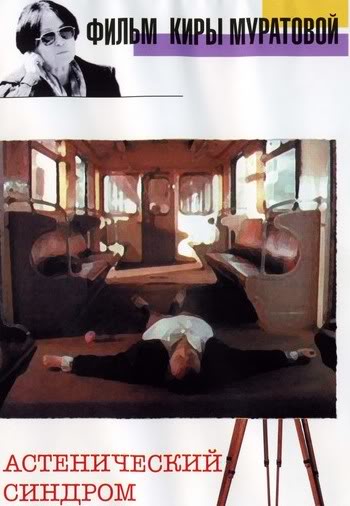
A great movie (1989), but not a pleasant or an easy one. Directed by the transgressive Kira Muratova in her mid-50s, it has been rightly called the only “masterpiece of glasnost,” though it was banned by the Russian government for obscenity. Beginning as a powerful black-and-white narrative about a middle-aged woman doctor in an exploding, aggressive rage over the death of her husband (who resembles Stalin), the film eventually turns into an even more unorthodox tale in color about a schoolteacher (cowriter Sergei Popov) who periodically falls asleep regardless of what’s happening around him. (The title alludes to a form of disability that encompasses both the doctor’s aggressiveness and the schoolteacher’s passivity.) Though this tragicomic epic has plenty to say about postcommunist Russia, it also deals more generally with the demons loose in today’s world. It may drive you nuts — as it was undoubtedly meant to do — but you certainly won’t forget it. In Russian with subtitles. 153 min. (JR)
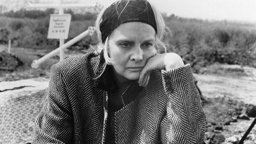 Read more
Read more
From the Chicago Reader (September 9, 2005). — J.R.
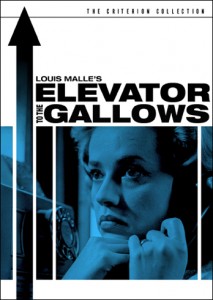
The debut feature of Louis Malle, this efficient but soulless 1957 thriller is often classified as part of the French New Wave, though that reputation seems unwarranted. The defining situation — an adulterer who’s just committed a murder (Maurice Ronet) patiently tries to pry his way out of a stuck elevator — shows the influence of Robert Bresson, for whom Malle worked as an assistant. There’s also some of the youthful insolence of Roger Vadim (And God Created Woman) when two young lovers take the killer’s car for a joyride. But the incompatibility of these influences suggests how little Malle’s absorbed them, though he gives Jeanne Moreau a juicy early role as the murder victim’s wife and engages Miles Davis to play the score (used conventionally as mood music). Also known as Frantic. In French with subtitles. 88 min. (JR)
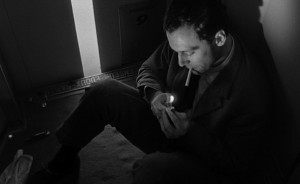 Read more
Read more
From the Chicago Reader (September 30, 2005). The last illustration, incidentally, is from the graphic novel that this film is based on.,,,See below for screenwriter Josh Olson’s recent response to this review. — J.R.
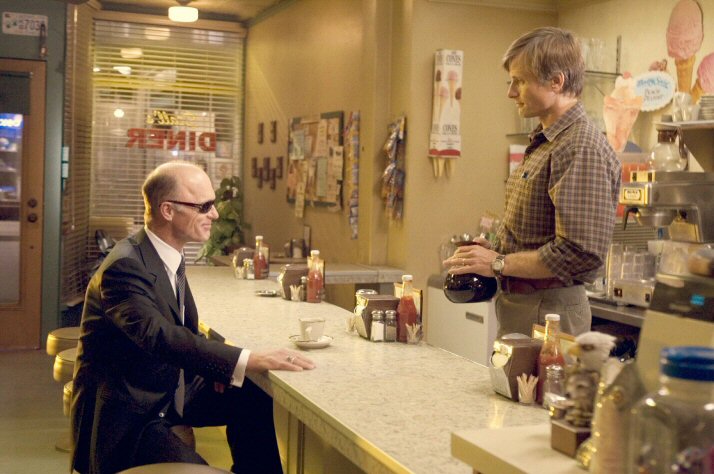
A History of Violence
**** (Masterpiece)
Directed by David Cronenberg
Written by Josh Olson
With Viggo Mortensen, Maria Bello, Ed Harris, Ashton Holmes, William Hurt, and Heidi Hayes
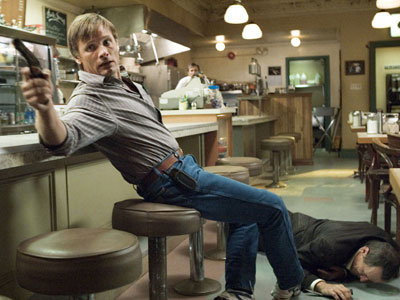
Tom Stall (Viggo Mortensen) is a happy family man running a diner in idyllic small-town Indiana, with a lawyer wife (Maria Bello), a teenage son (Ashton Holmes), and a little girl (Heidi Hayes). One night he responds so deftly and definitively to the violent threats of two killers that he becomes a local hero. A Philadelphia mobster named Carl Fogarty (Ed Harris) hears of the story and soon arrives in town claiming that Tom has another name and background — that he was once a gangster himself who mutilated one of Fogarty’s eyes with barbed wire.
Is A History of Violence a popular genre movie, soliciting visceral, unthinking responses to its violence while evoking westerns and noirs? Or is it an art film, reflecting on the meaning, implications, and effects of its violence, and getting us to do the same? Read more
The September 16, 2005 issue of the Chicago Reader ran a somewhat different edit of this piece. I’ve opted for restoring much of my original submitted draft in the first section, as well as my original title. –J.R.
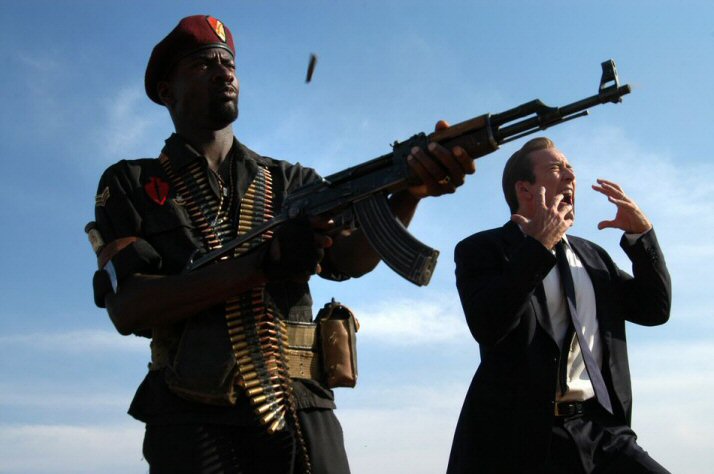
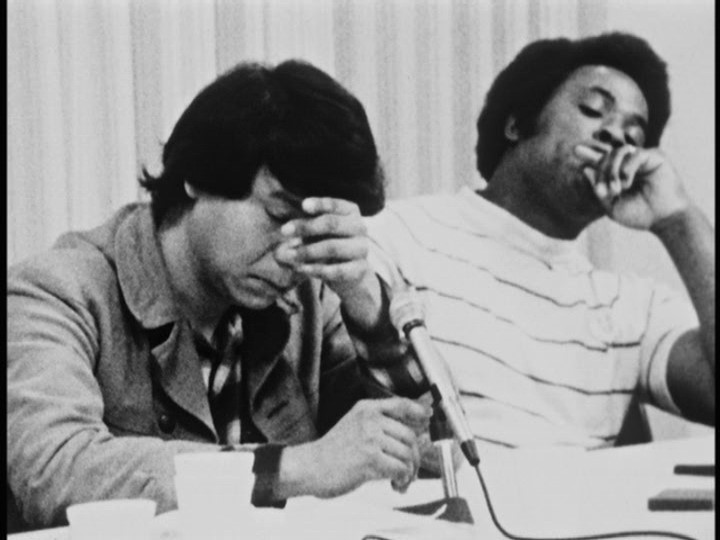
Lord of War
*** (A must see)
Directed and written by Andrew Niccol
With Nicolas Cage, Ethan Hawke, Bridget Moynahan, Jared Leto, and Ian Holm
Winter Soldier
*** (A must see)
Directed by the Winter Film Collective
“Memory believes before knowing remembers,” begins the sixth chapter of my favorite novel, William Faulkner’s Light in August. This odd but accurate observation perfectly describes my misremembering of Winter Soldiers —- an account of the Winter Soldier investigation held by Vietnam Veterans Against the War in Detroit in 1971. I saw it in Cannes shortly after it was made, in 1972, and haven’t seen it since until recently.
It’s almost as potent today as it was when I first saw it. But I recalled it being full of emotional breakdowns from the participants when in fact, apart from one Native American fighting back tears (who receives a standing ovation from many of the others), most of the soldiers’ testimonies are calm, thoughtful, and measured, in spite of the horrors they’re recounting. Read more








